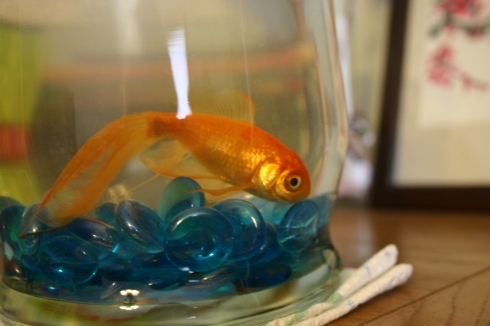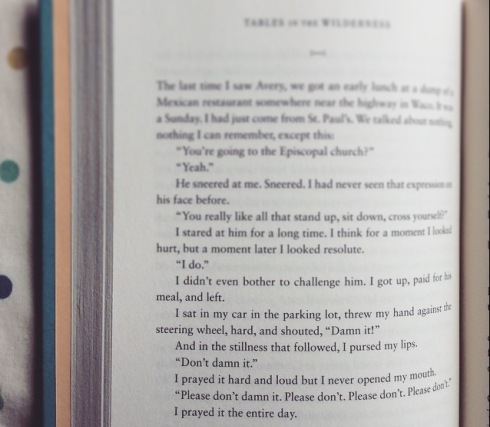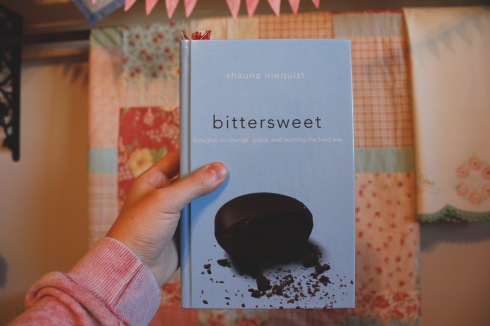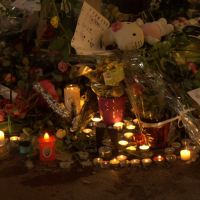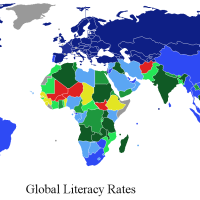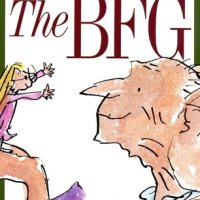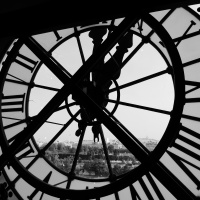Talking with a fantastic writer friend the other day, I brought up what I thought was a unique problem: I know I should read more, but at the same time, I feel guilty spending time on books. Turns out it’s not unique; Kate has the same struggle. And, since probably a lot of other people do, too, we decided a joint blog post might be a great way to share some insights on the issue.
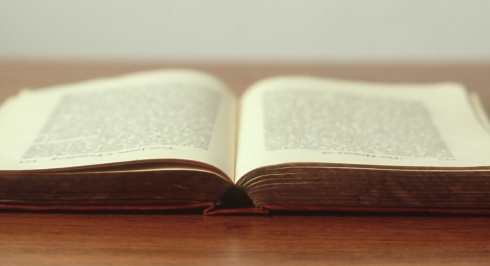
Me: We were talking the other day about how we feel guilty reading, like we’re wasting time we should be spending on something else. Is that something that happens even when we don’t have, say, homework we should be doing?
Kate: Oh definitely, at least for me. I always feel like there’s something I could be doing. Part of that comes from our writing classes, I think. We’re taught to always be writing, always getting more bylines. Reading doesn’t feel as productive, because it doesn’t have a tangible result. Reading is not work. And I’m at the stage of life (wow that makes me sound old) when I’m really focused on my future, building my career. Reading doesn’t seem to fit in, so I don’t make time for it. Even though I should.
I feel you on the career thing. With a limited number of hours in a day and a lot to get done, I often skip things that I want to do because I can’t see how they’ll benefit me later on. That’s probably the saddest thing the career drive has done to my reading/writing; I sacrifice what I get excited about for what I think I should get excited about. And when I do have time to read (or, y’know, when I decide to put off other things in favour of reading whether I have time or not) there are SO MANY BOOKS. Do you ever have the problem of not knowing where to start, so you just don’t?
Absolutely, yes! I have such a huge list of books I’m interested in, books people have recommended, books in my genre….it never seems to end.
Do you have a system for deciding what comes next? Lately I’ve been trying to mix it up—read a few “easy” books (read: YA spec fic) and then read one or two “hard” books (read: memoirs, literary fiction, etc.).
I tend to go by word of mouth. What are the people with similar tastes to mine reading and liking? Have I heard about a certain title more than others? Plus, you know, whatever’s closest and easiest to get hold of.
So you just go with whatever’s caught your fancy most recently?
Pretty much. It may not be the most efficient system, but it works. I mentioned earlier that I think part of my weird fear of reading stems from some of my classes, but what else do you think contributes to it?
One of the big problems is how I was raised. Don’t get me wrong—my parents were fabulous, and they taught me to love books above (almost) all other things; my mum had me reading before I was in preschool, and I read a lot, really early. But because they turned me into a bookworm, there was this problem of me constantly being hidden with a book when I was supposed to be doing something else. Homework, chores—you name it, I chose books over it. So whenever I was reading, my parents would be suspicious, and “Should you be reading or doing chores?” became a really common phrase. They taught me to always think, whenever I picked up a book, Is there something I haven’t finished yet?
Same sort of thing for me. I can remember actually getting in trouble at school for reading instead of paying attention. I can also remember hiding a flashlight in my room and sneaking a book under the covers at bedtime because I was almost done with the story and just had to finish it (although ‘almost done’ was a relative term; if I was hooked on the story, I’d stay up until all hours to finish it, even if I was only halfway through). If I had a chance of getting away with it, I’d pick a book over homework, chores, sleeping… pretty much anything. It’s a weird thing to say I got in trouble for, but reading has a guilty connotation for me now. I can’t help but figuratively look over my shoulder whenever I open a book.
I totally agree. I can remember teachers catching me with a book under my desk; seems like teachers should be excited for students who read, but I remember getting in trouble a lot, despite the fact that reading during class wasn’t affecting my ability to get better grades than anyone and everyone else.
Under the desk or stuck in another book? I used that trick a lot.
Heh unfortunately most of my classes weren’t “have your textbook open” types. I did used to hold books inside my desk in elementary school, back when we had desks, and then slouch and read through the tiny crack that my wrists held open.
Gosh, between reading through cracks and with tiny flashlights, it’s no wonder we need glasses.
Seriously. And the reading-by-the-passing-light-of-streetlamps-on-roadtrips thing? It’s a miracle we can still see at all!
No joke! So how do you deal with your reader’s guilt?

Denial is a powerful force… Haha just kidding. It helps to consciously recognise it. It helps to recognise that it’s not always a valid guilt. And sometimes it’s true: I do have other things I should be doing. At those times it helps to have a plan. For example, this weekend I spent hours just reading, but I knew what else I needed to do, and I set limits. I was allowed to read a book in one sitting, but then I had to get a certain number of assignments done before I let myself start the next book. And knowing why I’m reading also helps. Being able to specifically say, “I’m reading a recently published book in my genre because it’s important to keep current with what’s happening if I want a career in this field”—that really helps. How about you?
I’ve got a similar system. Almost every writer I’ve gotten advice from starts with the same thing—writers are readers. It’s how we grow. We practice our skill, but we have to study it first. So that helps a little. But I also have to set time aside to read just for the joy of it. I need a break from constantly working; everyone does. But unlike some, who run, or go for coffee with friends, or watch Netflix, I read. I find it relaxing to consume a book for the sake of the story with no ulterior motives. I have to find that balance you talked about, though. I’ll often reward myself with a new book if I can get things done by a certain time. It’s one of my favorite and most effective reward systems.
Do you set a specific time to read or just let it happen when it happens?
I try to fit it in the natural lulls in my schedule. I have busy times and calmer times, so I take advantage of the slower parts to read more. But if I’ve been super busy (like I have been the last few weeks) I might say, “Okay, I’m going to read for the next two hours, just to give my brain a break from thinking so much.” How do you fit reading into your schedule?
I used to just try to let it happen where it happened, but I’ve recently realised the importance of all those little cracks. So I have a three-hour shift at the library once a week, and instead of trying to do homework (I can’t use my laptop at the counter, so that makes it hard anyway) I’ve decided I’m allowed to read for those hours. And those are interrupted hours, of course, because I have to do my job, too, but it gives me a time to pull my book out. I also like to have a book out when I’m walking between classes—that’s five to ten minutes I can be reading—and I keep one in my bag in case of unexpected delays. A meeting postponed? No problem. I have a book. Finished my quiz early? I can read another paragraph or two. Stuff like that.
Agreed. Unexpected openings are the best. That’s one of the reasons I like having an e-reader. I can open up to whatever I was reading in a matter of seconds. And I feel like you can always identify the book nerds like us by whether they’ve mastered the reading-while-walking-and-not-killing-themselves skill.
It’s an important skill. (Back in high school, I had a daily 45-minute bike ride home from choir, so I also mastered the reading-while-biking-on-the-highway skill; my dad was not pleased.) Do you think there’s a hierarchy of types of books that we should be reading? I mean, are there certain books that really should wait till we’re done with all the other Adulthood Responsibilities, or is everything fair game?
I suppose I give higher priority to books in my genre, but I’m not sure if that’s me being responsible or just the fact that I write in the genre I love most. I try not to say that some books are “better” than others (though there are certainly books I consider “worse”). Any story that an author has taken time to craft has inherent value. I tend to gravitate more towards books on writing and books in my genre (fairy tale retellings, fantasy). But again, it’s not generally intentional. Do you prioritize?
Aside from prioritising homework assignments or things I’ve promised to read, I don’t think I do in practice. But I do know I have a tendency to feel I need to justify “easy” reads. Like, if I’m reading nonfiction or literary fiction or a classic, I’m totally cool. Those are accepted as important things to read, and I look smart and educated and stuff. But if I’m reading children’s or YA or fantasy, unless it’s something really well known (anything by Neil Gaiman or Tolkien, for example) I find I have to justify it to myself, remind myself that this is also valuable literature, that just because it’s not hard for me to get into or doesn’t have these huge sweeping “LET ME TELL YOU ABOUT THE HUMAN CONDITION” sentences doesn’t mean that it doesn’t have something meaningful to say. I noticed on the subway in New York over the summer that when I was reading a memoir or literary fiction, I’d hold the book up higher than when I was reading YA spec fic. That’s what got me thinking about it.
Oh yeah, that’s really tough. I read a lot of YA and fantasy (again, because that’s what I write) and it’s hard to feel confident about that. I find myself thinking, “I’m a 21-year old college student; I should be reading something more advanced than this.” But I can’t help but love some of those books. When I find myself questioning the value of kids’ books, I remind myself of the Narnia series. It’s a kids’ series and it’s become a classic. It’s good to remind myself that children’s literature can carry a lot of weight and be very significant in the literary world. But most importantly, I’ve learned that I never have to justify my choice of books. People should never be judged on what they’re reading. In my opinion, it doesn’t matter what you read as long as you’re reading something.
That’s a good point. I think children’s/YA books have a lot more content than people give them credit for, and because they’re written for children, they can’t be obscure about it. They need to have a purpose and get it out there in a way that will be straightforward enough for children to understand, subtle enough not to sound condescending, and entertaining enough to keep kids reading. And I think that’s a huge value. I think looking for the less obvious messages or worldviews in kids’ books helps me see their value beyond just entertainment. So moral of the day: Don’t be ashamed of what you’re reading. Recognise its value. Don’t feel guilty about reading. Life is way too short to pretend not to like good books.
Kate Jameson reads and writes faerie tales and loves hedgehogs. (Hedgehogs aren’t part of her official bio, but it’s true.) You can read her blog at kategjameson.wordpress.com or connect on Twitter with @KateGJameson.
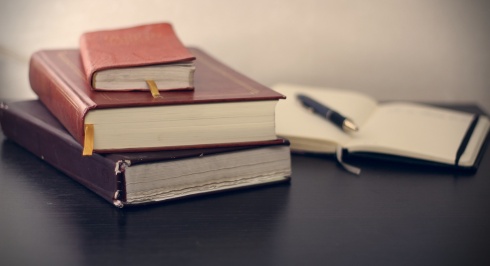
 Amy Gaasrud recently graduated from Taylor University where she studied Professional Writing. She currently works as a freelance proofreader for InterVarsity Press. When she’s not editing or writing, Amy loves baking, reading, and finding pictures of cute animals to send to her friends. To hear more from her, follow her on Twitter (@AmyGaasrud).
Amy Gaasrud recently graduated from Taylor University where she studied Professional Writing. She currently works as a freelance proofreader for InterVarsity Press. When she’s not editing or writing, Amy loves baking, reading, and finding pictures of cute animals to send to her friends. To hear more from her, follow her on Twitter (@AmyGaasrud).
